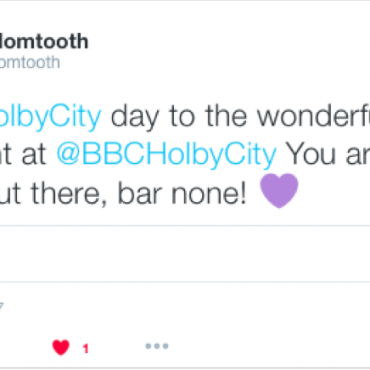Whether they ran, swam or pole vaulted their way through the Olympics, there was one event that every athlete could take part in: tweeting. Forget the journeys thousands of fans made to the games each day – in the end, it was Twitter that brought in the most traffic.
The ‘social media olympics’, as it is now widely known, allowed viewers to access Olympic coverage from the bathroom to the office at the click of a button. A fantastic feat by the BBC, no doubt, as head of coverage Roger Mosey wasn’t shy to point out via his personal Twitter account.
The athletes succeeded in getting on our televisions but with the rise of social media we were equally successful in getting inside their heads and (moreover) whenever either party felt like it. No longer did we have to wait for the breathless post interview by the reporter. Now, we could cut out the middle microphone and instantly access these thoughts ourselves.
Twitter’s unique selling point is its ability for users to connect directly, in ways previously not thought possible. Michael Phelps exchanged tweets with President Barack Obama for example, who tweeted, “Congrats to Michael Phelps for breaking the all-time Olympic medal record. You’ve made your country proud. – bo” Phelps replied, “Thank you Mr. President!! It’s an honor representing the USA.” The ability for fans and athletes to connect in this way gave the games a human, personal touch that encouraged a sincere devotion and will to those competing and a true appreciation for their spectators. Social media became universally social.
And with statistics comes truth: When the U.S. Women’s Gymnastics team won a gold medal, there was a spike of 29,000 tweets per minute, Twitter said. And when U.S. swimmer Michael Phelps achieved a record number of Olympic medals, it prompted some 37,000 tweets per minute. Usain Bolt’s successful defense of his 200m title, his second gold following his 100m victory at the London Olympics, led to so much discussion on Twitter that it set a new record during the Games, with a heady 80,000 tweets per minute flurry during his win. In total, over 15 million fans followed the Olympics on Twitter; with tweet volume 100 times more than that of the Beijing Olympics back in 2008.
Another positive by-product from the ‘Twitter Olympics’ is its generation of thousands of tweets and countless conversations about sport. The NBC Olympics Twitter Tracker counted 383,174 tweets about swimming and 335,881 tweets about gymnastics during the first week of the games, for example.
Athletes have also used Twitter to encourage followers to practise sports and promote their own training regimes. And as the government takes notice and makes a pledge to introduce compulsory competitive sport to the National Curriculum, one must argue the online and offline conversation generated from the Olympics has contributed to this move forward.
The negative side to the Twitter Olympics is well-documented; UK diver Tom Daley received malicious tweets telling him he’d let his late father down, which led to the tweeter’s arrest. Greek triple jumper Voula Papachristou was banned from the Olympic team after tweeting racist comments about African immigrants in Greece. And Australian swimmer Emily Seebohm blamed social media for her failure to take gold in the 100m backstroke.
Twitter has proven just as important for the Olympics as the coverage itself. With the Paralympic Games under way, related online conversation is eagerly anticipated and is sure to expand in diverse and interesting ways. But while there are the obvious pitfalls, we cannot ignore the positives: for athletes and fans, social media and most importantly, sport itself.
By Emma Rink









